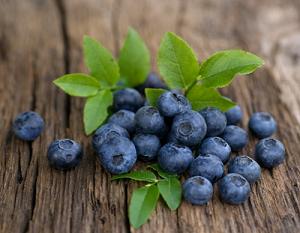
More evidence that low-calorie sweeteners are bad for your health
Studies show that artificial sweeteners can raise the risk of hypertension, metabolic syndrome, type 2 diabetes and heart disease, including stroke.

Natural Health News — Eating bilberries diminishes the adverse effects of a high-fat diet, according to a recent study at the University of Eastern Finland.
That’s good news for this time of year when rich, fatty foods are inevitably on many family menus.
For the first time, bilberries (Vaccinium myrtillus) were shown to have beneficial effects on both blood pressure and nutrition-derived inflammatory responses.
Low-grade inflammation and elevated blood pressure are often associated with obesity-related diseases. The study published in PLOS One, focused on the health effects of bilberries on mice that were fed high-fat diet for a period of three months.
Some of the mice were fed either 5% or 10% of freeze-dried bilberries in the diet. The researchers assessed the effects of the diets by looking at inflammatory cell and cytokine levels, systolic blood pressure, glucose tolerance, insulin sensitivity and weight gain.
Mice on the high-fat diet experienced significant weight gain and detrimental changes in glucose and lipid metabolism, inflammation factors and blood pressure. Bilberries diminished the pro-inflammatory effects of the high-fat diet, indicated by an altered cytokine profile and a reduced relative prevalence of inflammation supporting T-cells. Bilberries also prevented elevated blood pressure caused by the high-fat diet.
Bilberries constitute an integral part of the Nordic diet and they could be better utilized also elsewhere in the world. Bilberries are associated with several beneficial health effects and their use involves plenty of traditional wisdom.
The beneficial health effects of bilberries are thought to be explained by polyphenols, especially anthocyanins, the levels of which are significantly higher in bilberries than in commercially cultivated blueberries.

Please subscribe me to your newsletter mailing list. I have read the
privacy statement